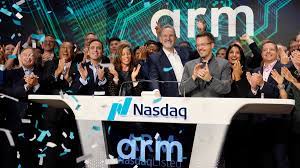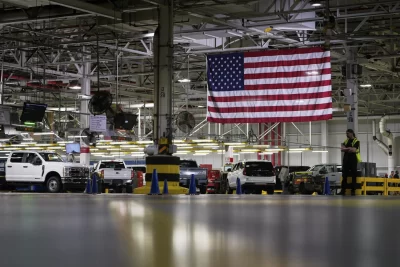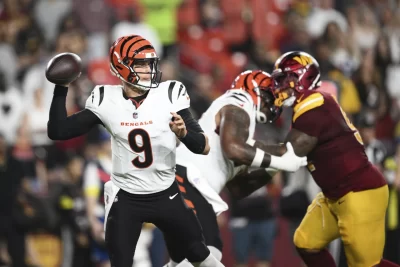
Shares of U.K. chip designer Arm Holdings rose 10% in their stock market debut, in what is the largest initial public offering of shares in nearly two years.
The shares opened at $56.10 on the Nasdaq Thursday after having been priced at $51. The offering price gave Arm a market value of $54.5 billion.
Most consumers use at least one product that contains Arm’s chips, though many people may not be familiar with the company itself. Its chip design is used in virtually all smartphones, the majority of tablets and digital TVs. More recently, Arm has expanded into artificial intelligence, smart devices, cloud computing, the metaverse and autonomous driving.
Arm’s offering is an important development for the IPO market, which has seen relatively few companies go public the past two years. It’s also a key moment for the Japanese technology investor Softbank, which acquired Arm in 2016, as well as investments banks such as Goldman Sachs that recently have taken in far less revenue from underwriting and advisory fees.
Softbank will retain a nearly 90% stake in the Arm. It’s the biggest IPO since the electric truck maker Rivian debuted in November 2021 with a market value of more than $66 billion.
Nearly 400 companies went public in 2021 as the stock market rallied for a third straight year, according to IPO tracker Renaissance Capital. Helping to boost that figure was a proliferation of deals involving special purpose acquisition companies, or SPACs. Also know as blank-check companies, SPACs exist solely to buy a private company and take it public. Some companies prefer SPAC deals because there are fewer disclosure requirements.
Then last year the Federal Reserve rapidly raised interest rates to combat high inflation and the stock market went into reverse, with the S&P dropping nearly 20% and the Nasdaq composite falling more than 30%. Private companies became hesitant to go public, and the number of IPOs sank to 71. This year, with the economy showing unexpected resilience, 70 companies had gone public by early September, although very few companies are choosing to go public via a SPAC deal.







